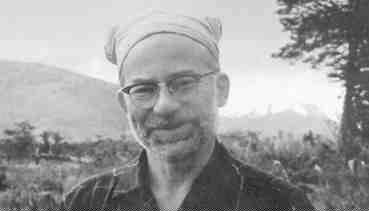Without the foresight, initiative and leadership of Franc Joubin (1911-1997), the mines of Elliot Lake, Ont., might never have come about.
Joubin was one of the most outstanding explorers in North America, if not the world. His achievements, awards, degrees and world-wide experience speak for themselves.
I first met Joubin back in 1949 at a gathering in Toronto to kick off the Beaverlodge uranium campaign. A young geologist who knew him turned to me and asked if I had met the man before. When I said no, he said “mark my work words: he’ll set the world on fire.” How prophetic that turned out to be.
Joubin inspired and affected our lives dramatically. With his natural wit and warmth, this quiet-spoken man was a born leader. “Knowledge is power,” he would often say, and he was living proof.
He was, by his own admission, a reading addict. We were once stuck in the small town of Waterways, Alta., for a few days and he eventually ran out of reading material. It was then that I caught him reading comic books — twice.
He was a visionary with unquenchable curiosity. During the extremely busy summer of 1953, he would periodically head up to visit us in the bush.
He frequently stressed the importance of little things, small requests and promises. He never seemed to forget people, no matter what the person’s rank or status in life might be.
I’ve never witnessed such a level of concentration, regardless the situation. Indeed, his concentration was so intense that an underground blast likely wouldn’t interrupt his train of thought. He would take about two minutes to pull out and go on to the next subject at hand.
In addition to playing a major role in the discoveries and development of the Blind River-Elliot Lake uranium camp, Joubin was an officer of the Order of Canada and worked for the United Nations in 70 countries over a period of 30 years. And these are only a few of his achievements.
After his tremendous financial success with Joseph Hirshhorn (1899-1981), Joubin occupied his time by investing in some high-class apartments in Toronto. He also bought a sizeable gold brick at the “old base price” and presented a paper at the convention of the Prospectors and Developers Association of Canada, maintaining that the price of gold would eventually rise substantially. Sure enough, in due course, the price reached $800 Canadian — close to his selling price for the gold bar.
He acquired large farmlands close to the Holland Marsh, north of Toronto, and was quick to recognize commercial gravel deposits that were soon to be exploited.
Joubin was also a philanthropist who spread his financial support far and wide — to individuals in need, scholarships, political causes and a long list of charities.
He wasn’t always so giving, however. During the early 1980s, while Joubin was sleeping in a San Francisco hotel room, a thief tried to steal his wallet. Joubin, being someone who never backed away from a confrontation, awoke and grappled with the individual who eventually shot him. I remember the wry grin on his face when he told me the thief wasn’t a good shot and that the bullet ended up in his posterior. The thief staggered off, but Joubin, bleeding profusely, managed to call the police.
It is impossible to sum up the greatness of the man, though perhaps D.M. McCormack came close in his eulogy at Joubin’s funeral. McCormack was a long-time collaborator and co-author of Joubin’s autobiography, Not for Gold Alone: The Memoirs of a Prospector. What follows is an excerpt from the eulogy:
“Franc sought in all situations in which he found himself to be not merely positive but creative. . . . Through my conversations with him, I learned that he had discovered valuable mineral deposits in five continents. How are we to account for this amazing record? When I put that question directly to Franc, he said: ‘I am persistent. In whatever situations I find myself I try to do my best. I look at things carefully. I concentrate.’ Franc was oriented to the future, not to the past, but he learned from what had happened not to repeat errors. He did not spend any time reflecting on what might have been. Franc Joubin was a good man and as I learned the details of Franc’s life, I became aware that he was also the most remarkable man I had ever met.”
Next week: Ralph Benner, Manfred Johnston and Roy Poutney.
The author, a professional engineer, resides in Barrie, Ont.





Be the first to comment on "Odds ‘n’ Sods: Joubin – The Father of Elliot Lake"